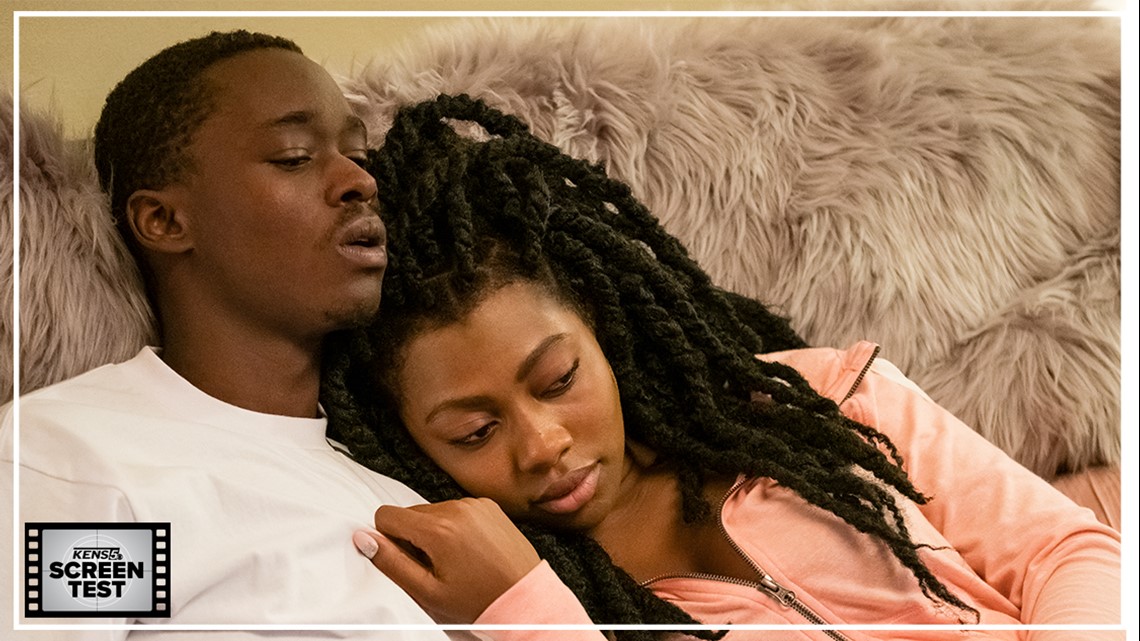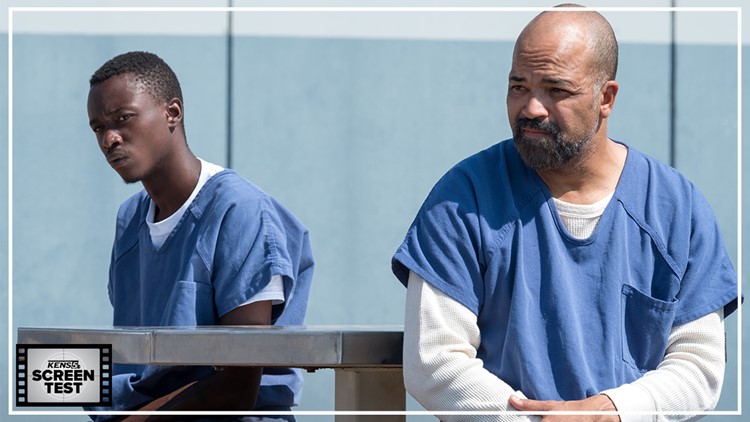If the killing that kicks off “All Day and a Night” is a brutally depicted one – and it is – then what immediately comes next and over the course of two hours is a mostly numbed effort to clear the air about stories of enduring Black struggle, to decipher why Jakhor (Ashton Sanders) ended the lives of two parents with an impenetrable calm that lingers on his face as he sits in a courtroom moments later, his own life permanently altered. There’s a suggestion that Jakhor resigned to living behind bars a long time ago, and it’s confirmed before long in his own words: “The judge told me this was the end of my freedom, but I can’t remember ever feeling free.”
The sophomore directorial effort from “Black Panther” co-writer Joe Robert Cole – laborious and boilerplate, but occasionally glinting with the emotion it’s striving for – is little concerned with heroism, though Cole has arguably given itself a Herculean task of trying to do away with narrative tropes in his timeline-hopping odyssey of an Oakland boy raised around gun violence, drugs and a lonely desire to break out of a feeling of redundancy. Because “All Day and a Night” begins at its coda, it transcends being a drama about the impact of personal shortcomings to take on a reflective guise, with heavy-handed voiceover from Sanders leading the way (“When violence is all around you, you get used to it”). But Jakhor’s somber insights, reaching for truths profound and universal, tend to be muted by a screenplay dominated by the very clichés it’s trying to comment on, sapping intrigue and diluting the power of its various commanding performances.
“All Day and a Night” unfolds along three timelines spanning 13 years, a structural mosaic that’s enough to get you to ignore murky indications of how close Jakhor is to that fateful night—until he has the gun in his hand. As a child, he responds to the tirades of an explosive father (Jeffrey Wright) immersed in drug-fueled conflict with quiet acceptance and grave understanding. There’s no getting around the unpredictable realities of the streets Jakhor grows up on, but what he does have some say in is staying out of the line of fire and out of prison.
The filmmaking from Cole here is purposefully, perhaps overly, prosaic as the deep-voiced Sanders wonders when Jakhor’s agency devolved into passiveness. Are we the places we come from? Are we resigned to the same fates as those we grow alongside? These questions hang over Jakhor as he steadfastly remains tangential to the constantly simmering gang war around him, using the news that he’ll be a father and his knack for rapping as justification and motivation not to end up in an orange jumpsuit like his own dad. Times call for action, but opportunity is hard to come by and Jakhor’s face when being told over the phone that “some kind of a higher education” is needed for a job he’s inquiring about drives in the stake of eventual consequence even further in. We know why the call will end there. We’ve seen this movie before.
Despite some gorgeous, “Moonlight”-esque cinematography, “All Day and a Night” is not as versatile as it thinks it is, and as Jakhor gradually becomes consumed by veiled aggravation, his laments about not having “an average life” fall flat amid Cole’s absent attempts at suggesting what an average life looks like in contrast. What is a day like in this community when gang-war tensions aren’t at the forefront? How does Jakhor’s family talk to one another outside his father’s profanity-laced explosions? Where exactly is the next steps he wants to take in the music career he occasionally mentions? “All Day and a Night” is so confined to moral darkness and social Darwinism of Oakland’s gangland that it doesn’t become a life for Jakhor to escape, but to simply endure. We, largely, are asked to do the same, with the primary mystery being who we saw Jakhor fatally shoot at movie's start.
Sanders, Wright and a strong supporting cast expertly convey the creeping of intergenerational weight, with layered performances that bring vulnerability and agony over identity to the fore. But the movie's politics can be dubiously surface-level. Every one of the movie’s few interactions between Jakhor and an unnamed white character develops into lowest-common-denominator insinuations of outsider judgement that tarnishes the story’s textures with overbearing familiarity. And when Jakhor and his mother engage in a shouting match about following in father’s footsteps – and falling into the same pitfalls – that familiarity can become deafening. Especially when we already know where Jakhor’s choices will lead him.


It’s difficult to decipher the intentions of “All Day and a Night” as it occasionally returns to Jakhor in the prison yard. What is already a grim story dares to go even more so when he refuses to see his son and the threat of bloodshed follows like a shadow. From where those threats come from, exactly, is a bit incoherent (the specifics of the movie's overarching gang war are murky) but the suggestion of a lack of shelter reinforces Cole’s sentiments.
It also lays rocky ground for a new one that sprouts quite suddenly in the movie’s final minutes—a tinge of renewed optimism that’s just about to take its first breath when the credits start rolling, as if it never belonged in the story, despite our desperate longing for it. Jakhor’s raps have gone from being a road to a better life to a self-fulfilling prophecy. You could say the same of “All Day and a Night” at large; it's a meditative tone poem all too eager to break its own rhyme.
"All Day and a Night" is rated R for strong violence, pervasive language, drug use and some sexual content/nudity. It's streaming on Netflix now.
Starring: Ashton Sanders, Jeffrey Wright, Isaiah John, Kelly Jenrette
Directed by Joe Robert Cole
2020



